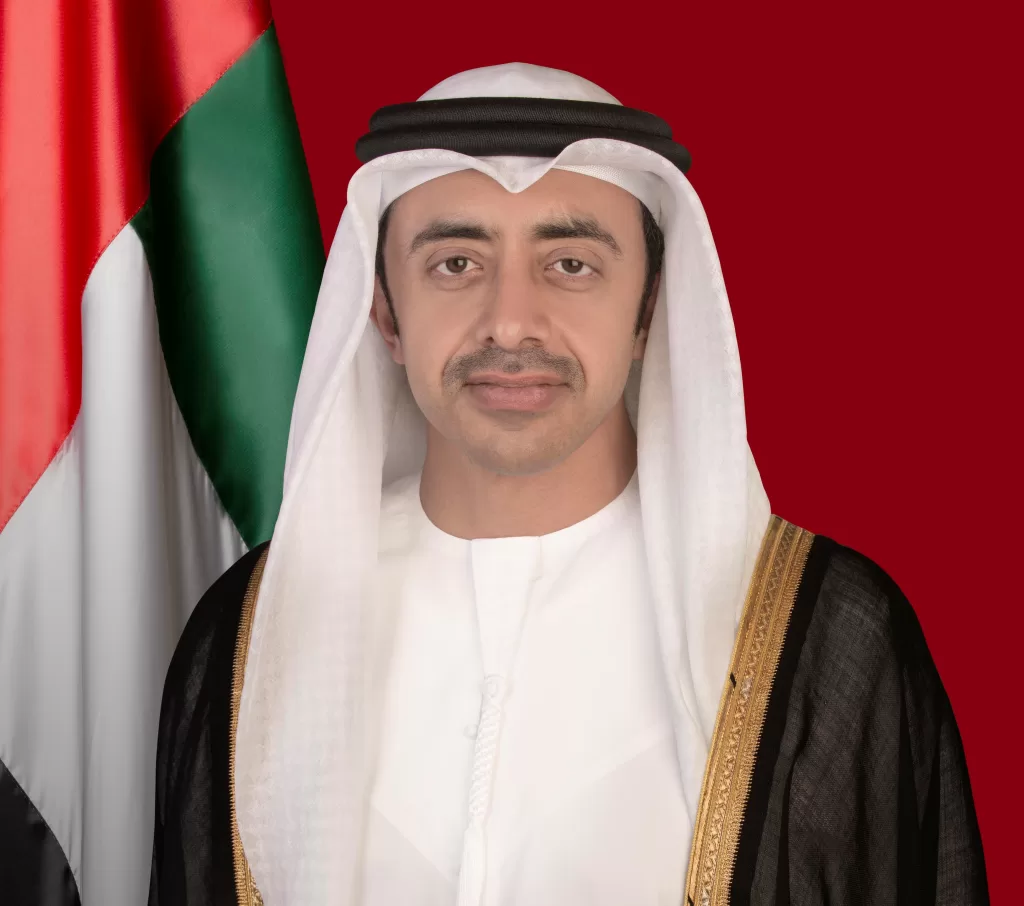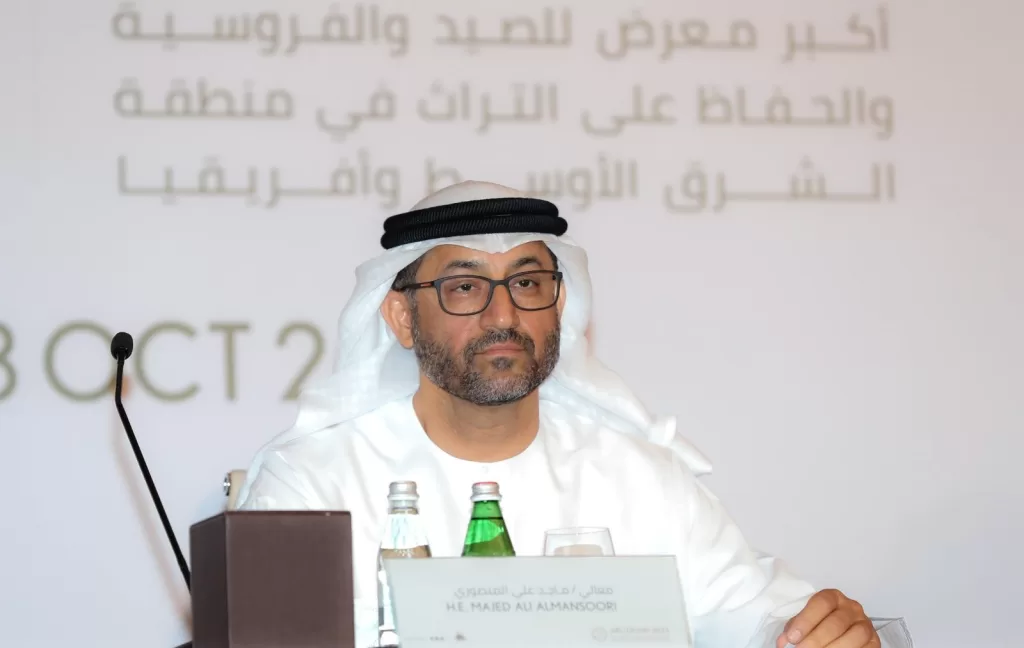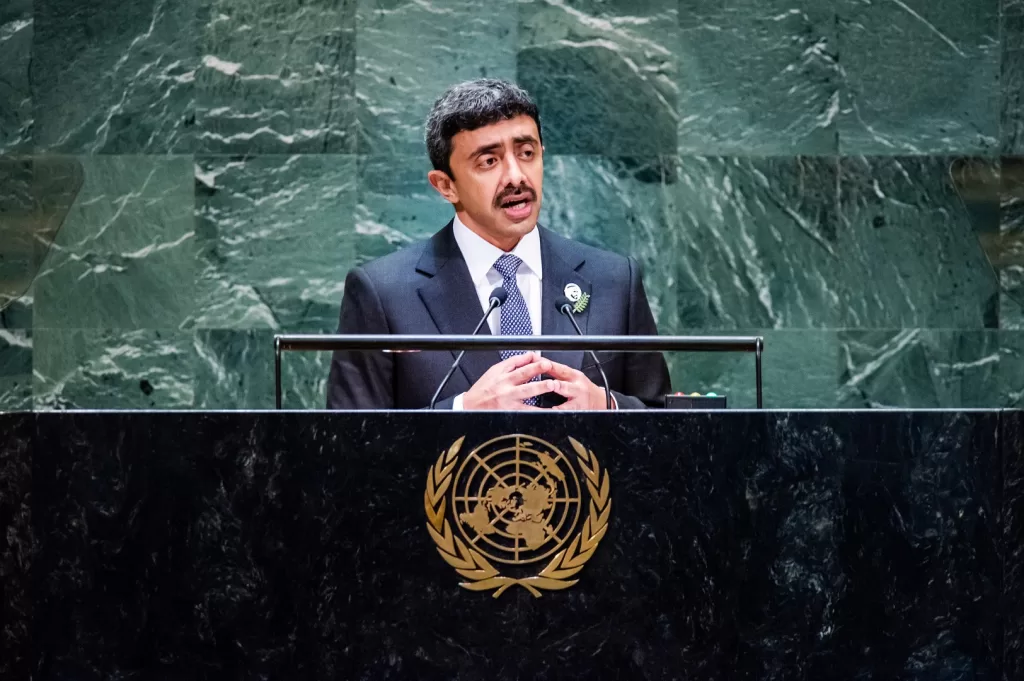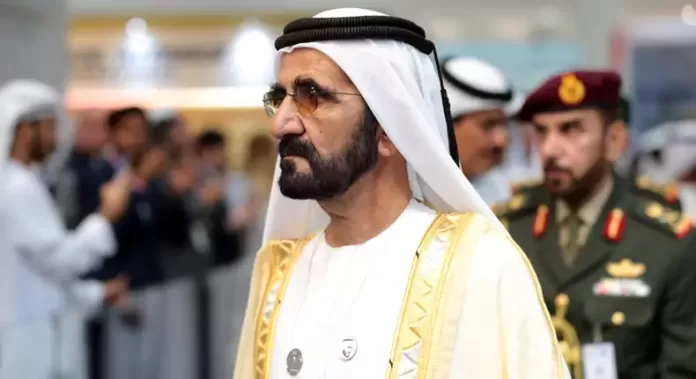Abstract
Foreign policy always plays a very important role in the socio-economic development, geo-political alignment, geo-strategic association and military axis among nations. In international power politics, it determines levels of isolation, sanctions or configuration of a country with others. Every country uses it as an effective tool to achieve its targeted socio-economic goals, trade volumes, internal security, guarantee against any external egression and active role in the regional and international politics.
Right from the beginning, the foreign policy of the United Arab Emirates has one fundamental goal: the enhancement through its dealings with foreign governments, individuals and organizations of the prosperity, stability, power and independence of the country and its citizens. The foreign policy of the United Arab Emirates is based upon a set of guiding principles laid down by the country’s first President, H.H. Sheikh Zayed bin Sultan Al Nahyan. These are based upon a belief on the need for justice in international dealings between states, including the necessity of adhering to the principle of non-interference in the internal affairs of others and the pursuit, wherever possible, of peaceful resolutions of disputes, together with support for international institutions such as the United Nations.
Its rigorous foreign policy has made it a most friendly country in the region and an ideal destination for investments (FDIs & FPIs) in the world. Its soft image rating is second to none. With the passage of time, under the supervision of the visionary leadership the Foreign Ministry of UAE has succeeded in making a forward-looking, integrative and comprehensive foreign policy. It follows latest methods and strategies of diplomacy to secure its national interests and gain global recognitions as well. Due to its inclusive foreign policy UAE has become an active player in the GCC/Middle East.
Having a foreign policy, UAE is an important country in the regional affairs and it is also contributing to many international issues. The UAE is proactive in achieving durable peace in the Gulf region through its continuous and rigorous belief in diplomacy, dialogue and endurance.
This research paper may be useful to understand the salient features of the UAE’s foreign policy. It may also be useful to teachers of political science, international relations, diplomacy, history, and journalism.
Introduction
Foreign policy of any country reflects its levels of political maturity/understanding, contributory role of visionary leadership, reconciliation, willingness of its strategic organs of the state, business/commercial diplomacy and peaceful coexistence and the UAE is not an exemption. Since its independence UAE has followed an articulated foreign policy to protect its national interests and wellbeing of its people too. Foreign policy plays an important role in the socio-economic survival of a country and it does not like or upholds status-quo. It is an ever changing process which opens unlimited windows of opportunities. It follows latest methods and strategies of diplomacy to secure its national interests as well as make several global initiatives.
Foreign policy is a continuous process and UAE understands its value and significance. Keeping in view its importance the UAE did make diversified efforts to achieve substantial goals in terms of energy security and strengthening of bilateral relations with many regional countries, especially with Pakistan.
Most recently UAE adopted the initiative for cooperation between member countries in the Arab League and the Pacific Small Islands Developing States which will further enhance its role in the region and world alike. It is the visionary leader’s supervision, people friendly policies of its rulers and the accurate nonviolent diplomacy strategies of foreign ministry which has made UAE a useful and active member of a significant number of international organizations such as the Human Rights Council, the International Atomic Energy Agency and the Organization of Civil Aviation.

H.H. Sheikh Abdullah bin Zayed Al Nahyan, Minister of Foreign Affairs of the United Arab Emirates delivered a remarkable speech in the General Debate of the 65th Session of the UN General Assembly which reflected the salient features, national priorities/interests, regional commitments and the international role of the UAE. It covered all the confronting challenges to the world at large along with its workable solutions.
Salient features
The well prepared and well executed speech pinpointed different challenges to international peace and security, strong and sustainable global economic recovery and hurdles to achievement of sustainable development. It covered the important topics of human survival on this planet i.e. attainment of the millennium development goals (MDGs), coping with the negative multiplier effects of climate change and responding to natural calamities. His speech also emphasized the importance of countering terrorism and regional instability, achievement of peace in the Middle East and non-proliferation of nuclear weapons and disarmament in the world.
Solutions
Wile addressing the General Debate of the 65th Session of the United Nations General Assembly in New York he stressed upon the need to have genuine political will, collective international integrated effort and relentless work in order to promote the principles and purposes of the UN Charter. According to him the UN Charter upholds rules of international law, guarantees justice, and achieves common interests among nations, large and small.
United Arab Emirates Commitments
Within the Arabian Gulf region, and in the broader Arab world, the United Arab Emirates has sought to enhance cooperation and to resolve disagreement through dialogue. In his magnificent speech H.H. Sheikh Abdullah bin Zayed Al Nahyan reaffirmed the United Arab Emirates forward-looking role by increasing the effectiveness of multilateralism within the United Nations system and enhancing and improving its effectiveness and management of its work. UAE has always supported responsible and serious efforts aimed at reforming the United Nations and its principal organs, including the Security Council, the General Assembly, the Economic and Social Council, as well as other specialised agencies and development programs. He also emphasized the importance of strengthening and developing cooperation between the United Nations and regional organisations. “UAE acknowledged the role of the United Nations in the peaceful resolution of existing conflicts, in peacekeeping operations and preventive diplomacy and in promoting the culture of peace and international cooperation”, he further said.
UAE and Gulf region
Foreign policy is the reflection of a country’s internal socio-economic compulsions, geo-political seriousness and geo-strategic implications and UAE is not an exception. Goal of achieving security and stability in the Gulf region is a vital priority for the UAE’s balanced foreign policy. It consists of respect for international law, peaceful co-existence, and promotion of confidence-building measures, good neighborliness, mutual respect, and non-intervention in the internal affairs of states and the peaceful settlement of existing differences.
During his analytical speech he highlighted his country official stance on the different issues within the Gulf region and considered its security and stability as a vital priority of UAE balanced foreign policy reflecting the principles of the United Nations Charter and rules of international law of peaceful co-existence, consolidation of confidence building measures, good neighborliness, mutual respect, non-interference in the internal affairs of states and resorting to peaceful resolution of existing disputes.
(a) Pakistan
Pakistan and the United Arab Emirates enjoy privileged relations at all political, economic and social levels. The strong foundation of such relations that are based on deep-rooted cultural affinities, common faith and trust was laid by late Sheikh Zayed bin Sultan Al Nahyan over the past four decades. It continues to be patronized by H.H. Sheikh Khalifa Bin Zayed Al Nahyan, the President of the UAE and H.H. Sheikh Mohammed bin Rashid al Makhtoum, Vice-President, Prime Minister and Ruler of Dubai.
Pakistan was the first country to accord formal recognition to the establishment of the Federation of seven Emirates in 1971. Bilateral relations have progressed steadily ever since. More than 1.2 million Pakistani expatriates are working in UAE and their earning contributes substantially to the foreign reserves of Pakistan. The ongoing consultations between the leadership of both countries and frequent exchanges of delegations at all levels reflect the time-tested relations.
The Foreign Minister spoke about his government’s commitment towards the stability of brotherly country Pakistan which is an essential actor for the maintenance of security and stability in the whole region. He pledged to continue his country’s contributions, especially within the framework of the Group of Friends of Pakistan in order to support the efforts aimed at achieving permanent development and stability. He identified different important deeds of his country towards the well being of the needy people in the on going national crisis in shape of floods in Pakistan. He said that the UAE launched a campaign, at the government and people levels, to support the Pakistani people to deal with the aftermath of the recent flood. UAE has donated more than US$60 million, in addition to dispatching 3 military Chinook helicopters for transport and rescue. In addition to that, the UAE as an important pioneer member of the Group of Friends of Pakistan, pledged to donate US$300 million during the Tokyo Conference.
(b) Peaceful Nuclear Program and non-proliferation
Safety of nuclear arsenals has become the foremost duty of each and every government in the world. Rising regional geo-political uncertainties, complicated international geo-strategic sensitivities and above all unfinished war against terrorism has already been made inroads in the foreign policies, defence strategies and national priorities of the countries around the globe. Right from the first day, United Arab Emirates has a clear concept about the peaceful use of nuclear energy for matching its rapidly advancing socio-economic development. UAE is taking all possible measures to make its peaceful nuclear program transparent, role model and open.
It is estimated that the renewable energy would generate $6-8 billion (Dh22.02bn) in alternative energy infrastructure development, which will incentivize local as well as businessmen and investors too to invest in the UAE. It seems that alternative/renewable energy is an excellent choice for economic diversification in the UAE.

Renewable energy’s multiplier effects
Majid Al Mansouri, secretary general of Environment Agency says that the UAE plans to generate seven per cent of its energy requirement from renewable sources such as solar and wind power by 2030. It is predicted that alternative/renewable energy would have multiplier effects on humanity, society, business, economy, nature, and politics in the years to come.
(a) Reduction of carbon emission. Increase in agro-productivity
(b) Easy and smooth means of energy
(c) Reduction of cost of production
(d) Effective control on deteriorating levels of climate change
(e) Creation of millions of new
The Foreign Minister highlighted the diversified but integrated policy initiatives of his country on the issue of peaceful nuclear energy program in order to meet its growing energy requirements in the future, rely entirely on the highest standards of transparency, nuclear safety and non-proliferation, and carried out under the supervision of the IAEA in full cooperation with the Agency and other friendly and responsible states with relevant experience in this field. He elaborated his country commitment to the requirements of non-proliferation finalized during the last Review Conference of the Parties to Non-Proliferation Treaty, and the balanced and responsible recommendations issued by the conference. Furthermore he reiterated UAE’s principled position which calls for making the Gulf Region and the Middle East a zone free of weapons of mass destruction, especially nuclear weapons. He called upon Israel to implement the resolution adopted by Parties of the Treaty to join the NPT unconditionally. He also urged Iran to fully cooperate with the IAEA and the international community in order to assuage regional and international fears and doubts raised on the nature of its nuclear program.
(c) Occupation of three UAE islands
He condemned the continued occupation of three UAE islands i.e. The Greater Tunb, The Lesser Tunb and Abu Musa by Iran and demanded the return of these islands under its full sovereignty, including their regional waters, airspace, continental shelf and their exclusive economic zone, as integral parts of the United Arab Emirates. He called upon the international community to urge Iran to respond to the peaceful and sincere initiatives of the United Arab Emirates, which call for a just settlement of this issue, either through direct and serious negotiations between the two countries or by referring the issue to the International Court of Justice to settle this dispute in accordance with the principles of the UN Charter and provisions of international law.
(d) Iraq
The Minister of Foreign Affairs talked about the situation of Iraq and said his country is following with great interest developments there. He reassured his country commitments for the progress and prosperity of the people of Iraq through comprehensive national reconciliation without any discrimination. He also reiterated the necessity to respect the territorial integrity, sovereignty and independence of Iraq, and to refrain from interfering in its internal affairs while safeguarding its Arab and Islamic identity.
(e) Arab-Israeli Conflict
The Foreign Minister was of the opinion that achievement of peace in the Middle East and resolution of the Arab-Israeli conflict are vital for the entire region which could be achieved through ending Israeli occupation of the Occupied Palestinian and other Arab Territories and its withdrawal to the line of 4 June 1967, including East Jerusalem, the Syrian Golan Heights and the remaining occupied territories in Southern Lebanon, in order to achieve a just and comprehensive peace in accordance with the resolutions of international legitimacy. He pledged UAE’s support to the Palestinian National Authority and its people. UAE extended its support to the Palestinian people in their quest for achieving their national goals and restoring their inalienable legitimate rights. Moreover, he reinsured his country support to the Palestinian National Authority in the direct negotiations with the Israeli government based upon international legitimacy, the Road Map and the statements of the Quartet, in order to ensure that the international community, especially the United States, fulfill their commitments and promises towards establishing an independent and viable Palestinian State living in security and peace side by side with Israel. He welcomed the statement of Mr. Barack Obama, the US President before the General Assembly showing his strong commitment towards the achievement peace in the Middle East. He also strongly condemned Israel’s brutal onslaught on the innocent Palestinian people in the shape of collective punishment policy and the inhumane blockade in Gaza. He demanded a stop to the Israeli settlement policy which caused many dimensional repercussions in the region.
(f) Security and solidarity with Lebanon
The Foreign Minister also declared his country’s support to the efforts of the Lebanese government towards achieving security, stability and national unity and called for respecting the sovereignty of the Lebanese state and for ceasing the repeated Israeli violations of the Lebanese airspace, waters, territories and regional safety in accordance with the Security Council Resolution 1701.
(g) Yemen
In his detailed and articulated speech he avowed UAE’s support to the Yemeni government as well as its people in addressing the present challenges and problems. He showed his commitments towards the security and stability of Yemen and its territorial integrity and safety. He proudly mentioned that his country plays an effective role within the Group of Friends of Yemen. He urged the international community to stand by the government of Yemen and extend to it the necessary assistance and support, in order to enhance its capacity to fulfill the requirements of fighting terrorism, restoring security and achieving stability and development.
(h) Sudan
During his speech he endorsed the efforts and agreements reached between the Sudanese government and major actors in Darfur aimed at achieving a peaceful settlement leading to stabilisation of peace and security in the country, and advancing the process of development and reconstruction in the country.
(i) Somalia
He again called upon all Somali parties to settle their conflicts, put an end to the suffering of the Somali people and stop all acts of violence and hostilities, in order to pave the way for reconstruction and combating piracy in accordance with the vision agreed upon at the conference held in Istanbul last May. He mentioned the horrendous acts of piracy in the Somali coast lines, and in the Gulf of Aden, the Arabian Sea and the Gulf of Oman and termed it a grave security threat to the regional countries. He stressed upon the need to have further effective regional and international cooperation to put an end to piracy.

(j) Afghanistan
In his speech the Foreign Minister proudly highlighted UAE’s contributions to Afghanistan, including financial contributions totalling 1.5 billion dollars since the Tokyo Conference 2009 till now. He also mentioned that the UAE extended support to the Afghan Government to restore security and stability in the country and alleviate the suffering of its people. He shared that his country will host an international conference by the end of October 2010 in Dubai to discuss ways and means of developing partnerships between private and public sectors to invest and execute development projects in Afghanistan. Moreover, he welcomed the declaration of Kabul Conference held last July, and called on all parties in Afghanistan to cooperate in implementing that declaration.
(k) Terrorism
He renewed UAE condemnation of terrorism in all its forms and manifestations, whenever and wherever. While he confirmed that terrorism does not recognise national boundaries or religions, he stressed the need to intensify regional and international efforts aimed at combating terrorism, implement relevant resolutions and recommendations issued by regional and international organisations and conferences, and reactivate the UN Global Strategy for combating terrorism.
(l) Climate Change
He rightly portrayed the multiplier effects of increasing ratios of climate change around the globe in shape of devastating earthquakes, hurricanes, floods, droughts and natural disasters. He stressed the importance of increasing international cooperation efforts in order to reach effective solutions to climate change before the forthcoming conference in Mexico. He also rightly demanded the necessary financial and technical support needed for enabling developing countries to address effectively the challenges of Climate Change. He also shared different meaningful steps taken by his country in the field of alternative/renewable energy under the preview of the Convention on the Establishment of the International Renewable Energy Agency (IRENA) to cope with the serious problem of climate change.
(m) Empowerment of Women
In the recent past, the UAE’s cabinet announced a charter “Vision 2021” which indicated its political leadership’s commitment to excel in each and every field and achieve desired socio-economic goals.
In his well appreciated speech the Foreign Minister also focused on many global issues relating to empowerment of women and gender discrimination. He proudly shared UAE commitments and strategies for the empowerment of women in his society. He mentioned different legislations for the betterment of womanhood in UAE due to which women are playing their important part in macro-economy and social development.
(n) Human Trafficking
During his speech he attached great importance to the issue of human trafficking, and emphasised the need to strengthen our collective strategic efforts to control it because it mars the security and stability of human societies. He talked about the different laws and mechanism of his country to cope with this menace. Keeping in view the severity of this issue he stressed the need to have an integrated, coordinated global strategy to combat and protect against this phenomenon, and provide care, rehabilitation and raising global awareness of human trafficking in order to reduce it until complete elimination.
(o) Islamophobia
He supported and welcomed all the efforts made by international organisations and initiatives to promote the spirit of reconciliation, interfaith harmony, peaceful co-existence, and cooperation among all religions and cultures. He deeply expressed his country’s concerns over the growing Islamophobia and campaigns targeting religions, and moreover, emphasised the importance of building a genuine global partnership for opening channels of communication and understanding, spreading culture of peace, promoting acceptance of the other, respecting other religious beliefs and closing the way to those who spread hatred, humiliation, stereotypes, and hostility among the followers of different faiths. He appreciated the activities of the Alliance of Civilizations Forum and welcomed the holding of the fourth session of the Forum in Qatar next year to promote interfaith dialogue.
Conclusion
The research study of the foreign policy of the United Arab Emirates since its establishment in 1971 demonstrates that certain issues and interests have remained central throughout the period. The regional issues relating to the Gulf region, the preservation of whose political security and stability is an essential component of the security of the UAE itself. During that period, the UAE has succeeded in remaining insulated from the impact both of major political changes in the region and of two major armed conflicts.
It is the matter of the Palestine-Israel unending conflict, peaceful pursuit of nuclear energy program, NPT, Gulf region security issue, strengthening of bilateral relations with Pakistan, occupation of three islands, flash point in Afghanistan, ethnic cleansing of Sudan and civil riots of Yemen or human miseries in Somalia the United Arab Emirates has always stood out in showing its visionary leadership qualities and high level of pragmatic foreign policy. In the matter of energy security or heritage protection the UAE was the first to present the friendly articulated aspects of its comprehensive foreign policy. Whether it is the crucial issue of environment/climate change or human rights and global charity missions or humanitarian/peacekeeping tasks, the UAE has always risen above the occasion and has been every ready to eradicate the sufferings of struggling people around the globe.
References
1. Mehmood-Ul-Hassan Khan (July 19, 2010). UAE Foreign Policy: A Research Study. Overseas Pakistan blog
2. Mehmood-Ul-Hassan Khan (July 19, 2010). UAE Foreign Policy. Jurat International.
3. Mehmood-Ul-Hassan Khan (July 3, 2010). Emerging trends in Nuclear Arsenals Doctrines. Overseas Pakistan blog.
4. Mehmood-Ul-Hassan Khan (May 20, 2010 ). NPT and armed forces of UAE. Overseas Pakistan blog.
5. VISION 2021: A way to glory (February 26, 2010). Overseas Pakistan blog.
6. Mehmood-Ul-Hassan Khan (September 27, 2010). Pak-UAE to enhance bilateral relations The News.
7. Mehmood-Ul-Hassan Khan (September 21, 2010). Pak-UAE bilateral relations: from strength to strength. Dawn
8. Mehmood-Ul-Hassan Khan (January 23, 2010). UAE’s Alternative/Renewable Energy Pursuits). Overseas Pakistan blog
9. Mehmood-Ul-Hassan Khan (December 7, 2009). Visionary leadership, strong defence and balanced foreign policy Overseas Pakistan blog
10. Mehmood-Ul-Hassan Khan (December 3, 2009). Pakistan-United Arab Emirates: Heart to Heart. Overseas Pakistan blog
11. Mehmood-Ul-Hassan Khan (November 24, 2009). United Arab Emirates Nuclear Program: A Research Study. Defence Journal




